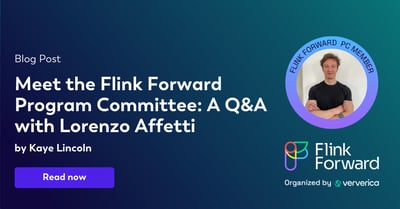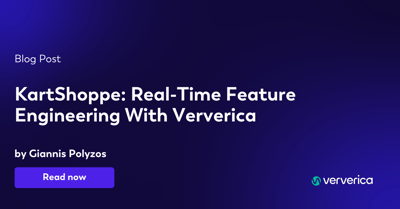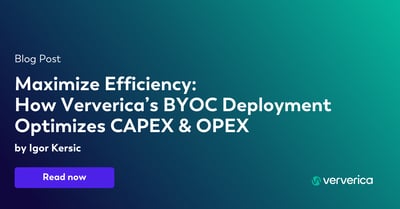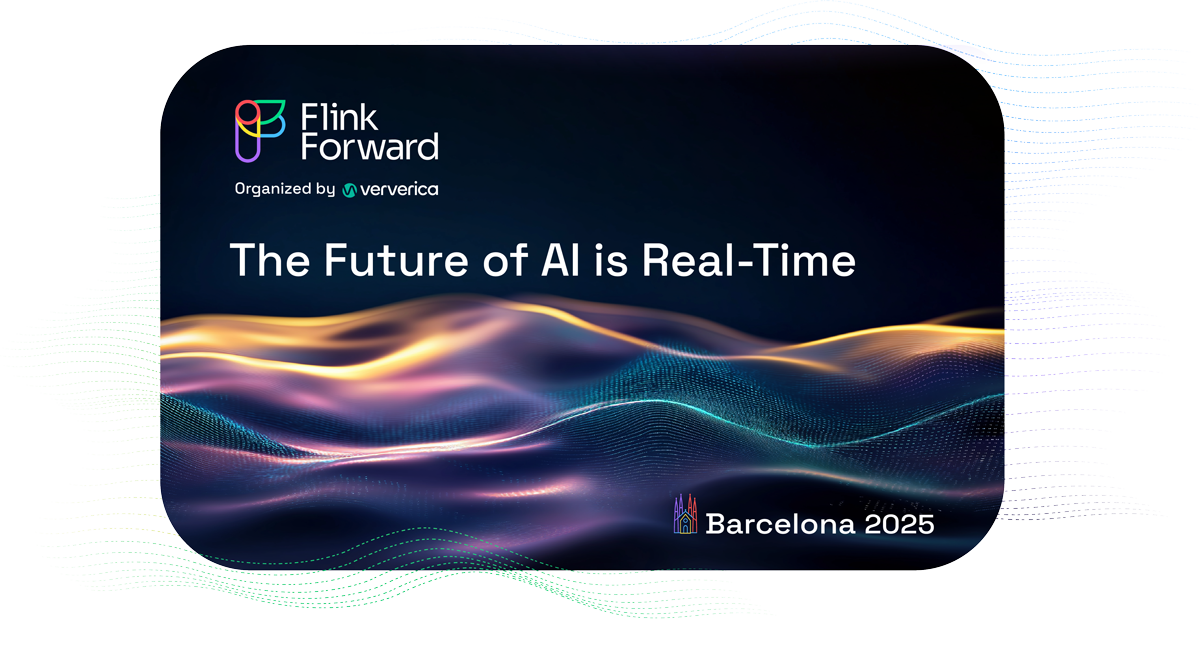Q&A with Filip Yonov: Unveiling the Future of Streaming Data Platforms
Q&A with Filip Yonov: Unveiling the Future of Streaming Data Platforms
At Ververica, excitement is brewing as we prepare for an exceptional event at this year's Flink Forward in Berlin, set to take place from October 21st to 24th! Our events owe their success to the dynamic community that supports Apache Flink® and everything streaming data!
We're thrilled to announce that Filip Yonov, Head of Streaming at Avien, has joined as one of this year's Flink Forward Program Committee Members. Tasked with the vital job of evaluating and selecting talk submissions together with other Program Committee Members, Filip, and his fellow committee members are instrumental in selecting talks that will form a diverse and insightful program.
I recently had the opportunity to sit down with Filip to delve into his journey with streaming data platforms and get an insight into his perspectives on the trends poised to shape the industry.
As the Head of Streaming at Aiven, what are some of the emerging trends or customer demands you're observing in streaming data platforms?
Businesses are increasingly looking for ways to offload the complexities of deploying and managing streaming infrastructure in a cost-efficient manner. The data streaming landscape is fragmented and complex, especially when compared to the streamlined world of data storage - a barrier to innovation and a source of frustration. This complexity is an opportunity and it demands a radically different approach to address the needs of modern streaming.
I like to focus on three critical customer needs:
Simplification is a mission: Businesses want the same streamlined experience managing streaming data that they have with data storage. Aiven Streaming delivers on this. Forget fragmented tools and complex setups. Our solution is unified: it allows customers to connect data sources, stream to any destination, process in-flight, and apply essential governance. It's more than just Kafka. It's a platform that lets customers focus on their applications while we manage the rest.
Real-time is the only time: The era of waiting for insights is over. Real business value happens in milliseconds, demanding real-time decisions and responses. This isn't about Big Data anymore – it's about Intelligent Data. Tech giants already understand this, using streaming for fraud detection, personalized recommendations, and thousands of other use cases. Their competitive edge comes from real-time intelligence. I predict the era where only resource-rich companies could deploy sophisticated real-time processing is over.
Flexibility is built-in, not bolted-on: Modern companies demand solutions that work within their hybrid and multi-cloud architecture. That's the reality, and Aiven meets them offering a unified experience on six clouds. A managed streaming service must integrate seamlessly, providing the adaptability needed today and for the future.
This isn't about technology – it's about customer empowerment. This is a market ready for change.
How does your background in product leadership inform your approach to managing streaming platforms?
First and foremost, I'm deeply committed to understanding our customers' needs. If I don’t solve customer problems I am wasting my time. Building a successful streaming data platform means providing solutions that address their real-world problems and streamline their operations.
Secondly, my decisions are data-driven. It is key to prioritize features and roadmap development based on concrete metrics, ensuring we're always focusing on areas that have maximum impact.
Lastly, I recognize the paramount importance of collaboration. Building an exceptional streaming data platform requires the expertise of engineers, operators, and customer support working together to achieve a common goal. Through unified efforts and shared objectives, we can effectively realize our vision and deliver unparalleled value to our customers.
From your perspective, how does Flink Forward contribute to the broader conversation around managed services and cloud infrastructure for stream data processing?
Flink Forward is a catalyst for knowledge sharing. Practitioners exchanging successes and lessons learned accelerate adoption and innovation for the entire industry as a whole. The conference fosters a vibrant community where users, vendors, and experts converge to share their experiences and expertise, ultimately contributing to the development of resilient and efficient solutions. Furthermore, Flink Forward represents an invaluable opportunity to collectively shape the future of managed streaming data technologies. Through cooperative efforts and shared visions, attendees can collaboratively chart the optimal path forward, ensuring that these technologies continually evolve to meet the market's changing demands.
As a veteran in the cloud infrastructure space, what challenges do organizations face when adopting managed streaming data platforms, and how does Aiven address these challenges?
What I see is that there are three distinct challenges:
A skills gap: Finding talent with streaming expertise is difficult, and building an expert team takes a significant amount of time and investment. Take for example a logistics company aiming to implement real-time inventory tracking across their warehouses – finding developers who are well-versed in streaming technologies can hinder the entire project. Aiven solves this with training, support, and simplified tooling to lower the barrier to entry. This allows for real-time data initiatives to be achieved faster.
Operational complexity: Self-managing streaming platforms is time-consuming. Scaling, upgrades, partition balancing, and performance tuning are all specialized tasks. Consider a financial institution seeking to implement real-time fraud detection – their internal teams shouldn't be bogged down by infrastructure complexity. Aiven handles scaling, security, and upgrades, letting customers focus on their critical business logic.
Vendor lock-in: Some solutions limit choice or offer streaming in isolation, without the other data services that maximize its value. Imagine an e-commerce platform aiming to personalize recommendations based on real-time user behavior. A locked-in solution limits what data sources they can connect or what analytics tools they may prefer. Aiven's open-source model focuses on a vast streaming ecosystem and a comprehensive data platform, enabling customers to deploy once and use anywhere. This allows for optimization in their streaming capabilities for a multi-cloud environment while reducing overall infrastructure costs.
What are some success stories or case studies from your experience where managed streaming data platforms have enabled organizations to achieve their business objectives?
Aiven has over 800 customers with wide-ranging use cases, demonstrating the incredible versatility of streaming data. Here are the shifts I see:
Real-time or irrelevant: The old way was reacting after the fact. Now it's about personalization that happens instantly, logistics problems solved before they cause delays, and spotting anomalies the second they arise.
Unlocking what wasn't possible: Streaming isn't about doing the same things faster. It's about predictive maintenance that cuts downtime, proactive support that raises customer satisfaction, and entirely new features that wouldn't exist without real-time data.
AI’s fuel: The most exciting applications of the future will be built on a foundation of always-on intelligence and the streaming that enables it. Consider Priceline – they adopted Aiven for our streaming services. They not only scaled to handle new growth, but their insights went from hours to seconds across their platform. That's a direct win for their customers in real-time powered interactions.
What advice would you give to organizations considering migrating their stream processing workloads to managed services, and what are some key considerations they should keep in mind?
First, I would recommend starting with a clear use case: Don't migrate for the sake of it. Identify a specific business problem that real-time streaming can solve.
Second, assess in-house expertise: Determine if you have the necessary skills internally. If not, a managed service reduces your need to hire dedicated experts.
Lastly, take the long-term goals into consideration: Evaluate providers on their roadmap in alignment with your needs, support for multi-cloud support, and commitment to open standards.
How do you envision the future of stream processing technologies like Apache Flink, and what role do managed services play in democratizing access to these technologies for businesses?
Flink is essential to the next generation of streaming workloads. As we are marching towards an AI-enabled world, my vision extends beyond Streaming Data Platforms. For example, advances in model-serving technologies, such as Vertex and MLFlow open new opportunities. This means Flink can now incorporate AI models, transforming stream processing into a powerhouse for AI-based decisions. This paradigm shift will simplify what was once a complex, and costly endeavor. Enabling businesses to deploy general models for specific tasks, like fraud detection, with minimal effort.
My mission is to democratize that power. I envision a world where every business leverages AI on streaming data, allowing machine-driven decisions at the speed of the data itself. Flink's ability to integrate with model-serving APIs paves the way. Soon, instead of complex custom AI deployments, businesses will leverage general-purpose models deployed in-stream to instantly detect patterns, predict trends, and take preemptive action. I see this as the birth of the new norm towards a Streaming Intelligence Platform.

You may also like

Meet the Flink Forward Program Committee: A Q&A with Lorenzo Affetti
Meet Lorenzo Affetti, a Program Committee member for Flink Forward 2025, ...

Outrun Fraudsters with Agentic AI and Ververica
Enhance fraud detection with agentic AI and Ververica's real-time stream ...

KartShoppe: Real-Time Feature Engineering With Ververica
Discover how KartShoppe leverages Ververica’s real-time feature engineeri...

Maximize Efficiency: How Ververica's BYOC Deployment Optimizes CAPEX and OPEX
Learn how Ververica's BYOC deployment leverages CAPEX and OPEX to optimiz...















